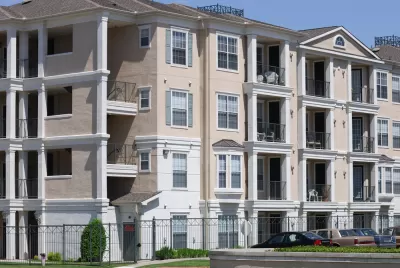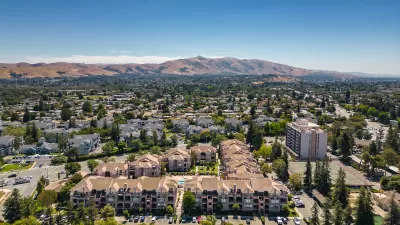Improving housing affordability and boosting housing production requires more than just eliminating single-family zoning.

Zoning reform, particularly the elimination of single-family zoning in favor of higher density, has been at the forefront of efforts to reform U.S. land use planning and improve housing affordability. “But identifying the land-use policies that most effectively add housing is harder than it seems,” write Yonah Freemark and Lydia Lo in Bloomberg CityLab. “Mounting evidence indicates that one-off reforms such as eliminating single-family-only zoning aren’t adequate. To make meaningful progress in building homes, municipalities have to do more.”
To achieve the Biden administration’s goals, Freemark and Lo recommend that the federal government “require that local governments seeking grants both show that their zoning changes are actually producing additional housing units, and also that their reforms include the full array of land-use policies that affect housing affordability,” warning that “a one-size-fits-all strategy won’t be effective or equitable.”
While permitting more ‘missing middle housing’ is “a good step forward,” the authors write that “it will not increase access to housing unless those units get built.” Pointing to an example from Minneapolis, the article notes that “Between 2018 and 2021, according to city data, permits for small apartment buildings doubled, but only to 81 total housing units in those types of structures — a tiny figure in the context of the city’s 180,000 households.”
The authors go on to say that “Drawing attention to these middling effects does not invalidate Minneapolis’s reform,” but “other, less-prominent changes Minneapolis made in the previous years were much more effective in increasing the city’s housing stock.” These changes include legalized accessory dwelling units (ADUs) and the elimination of parking requirements, which led to a doubling of the number of permitted housing units from 2015 to 2020.
Freemark and Lo describe how the federal government can encourage effective zoning reform and land use regulations that addresses the needs of each community and demonstrably increases housing production, noting that “Aligning all elements of land-use policy is necessary to make meaningful progress.”
FULL STORY: Effective Zoning Reform Isn’t as Simple as It Seems

Alabama: Trump Terminates Settlements for Black Communities Harmed By Raw Sewage
Trump deemed the landmark civil rights agreement “illegal DEI and environmental justice policy.”

Planetizen Federal Action Tracker
A weekly monitor of how Trump’s orders and actions are impacting planners and planning in America.

The 120 Year Old Tiny Home Villages That Sheltered San Francisco’s Earthquake Refugees
More than a century ago, San Francisco mobilized to house thousands of residents displaced by the 1906 earthquake. Could their strategy offer a model for the present?

Ken Jennings Launches Transit Web Series
The Jeopardy champ wants you to ride public transit.

BLM To Rescind Public Lands Rule
The change will downgrade conservation, once again putting federal land at risk for mining and other extractive uses.

Indy Neighborhood Group Builds Temporary Multi-Use Path
Community members, aided in part by funding from the city, repurposed a vehicle lane to create a protected bike and pedestrian path for the summer season.
Urban Design for Planners 1: Software Tools
This six-course series explores essential urban design concepts using open source software and equips planners with the tools they need to participate fully in the urban design process.
Planning for Universal Design
Learn the tools for implementing Universal Design in planning regulations.
Clanton & Associates, Inc.
Jessamine County Fiscal Court
Institute for Housing and Urban Development Studies (IHS)
City of Grandview
Harvard GSD Executive Education
Toledo-Lucas County Plan Commissions
Salt Lake City
NYU Wagner Graduate School of Public Service





























